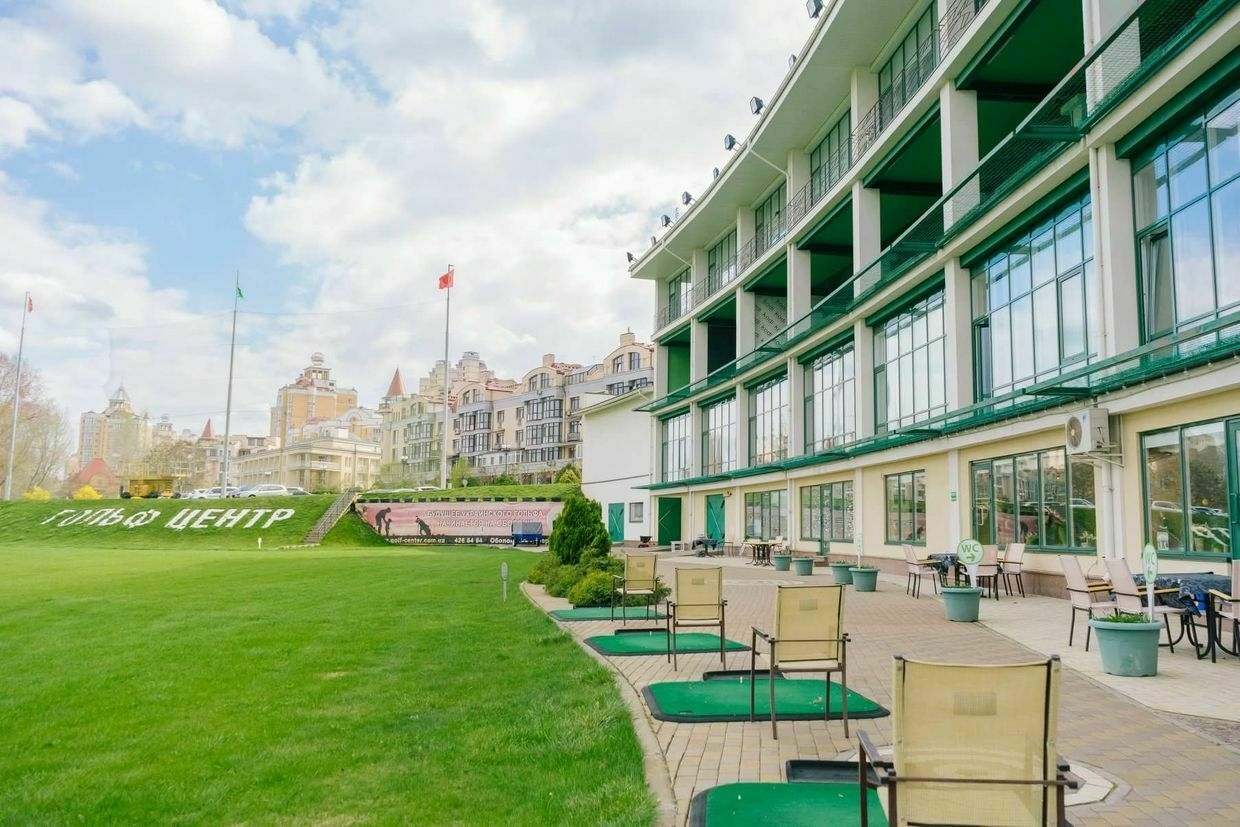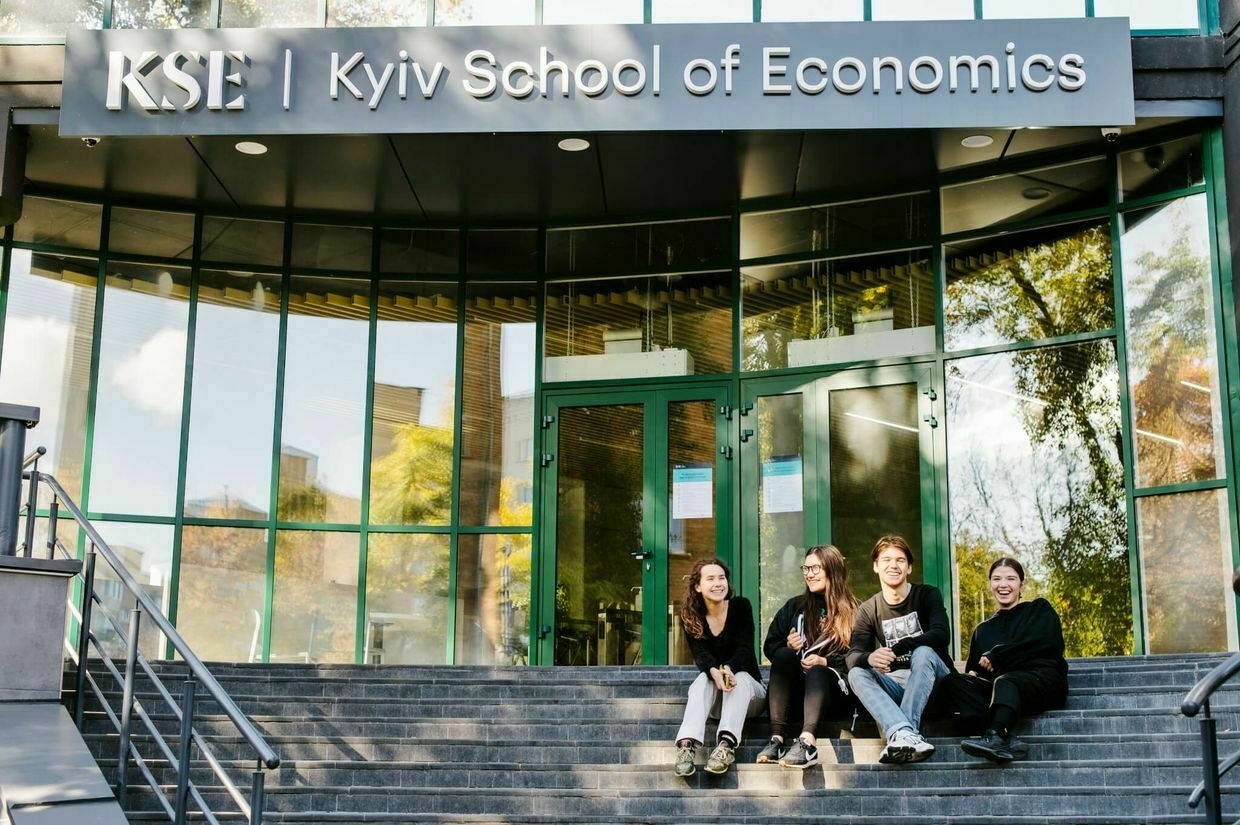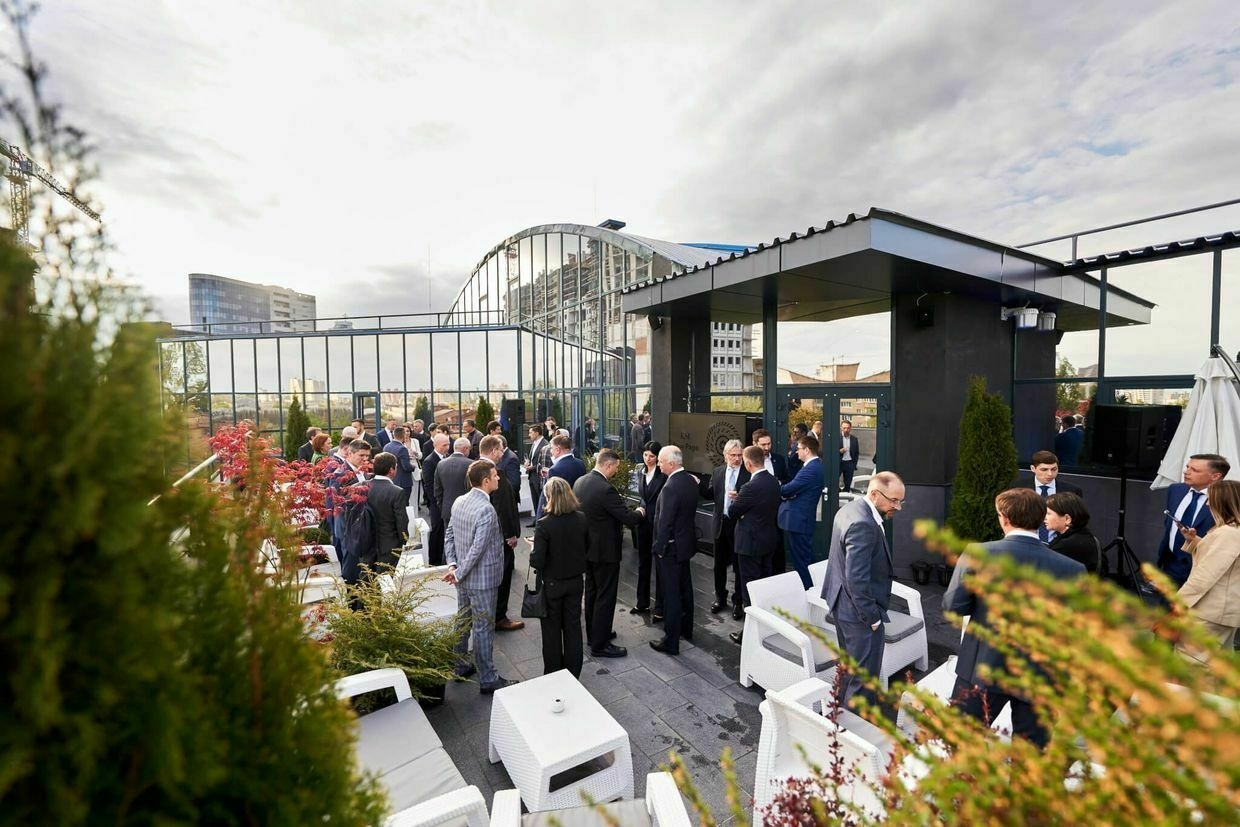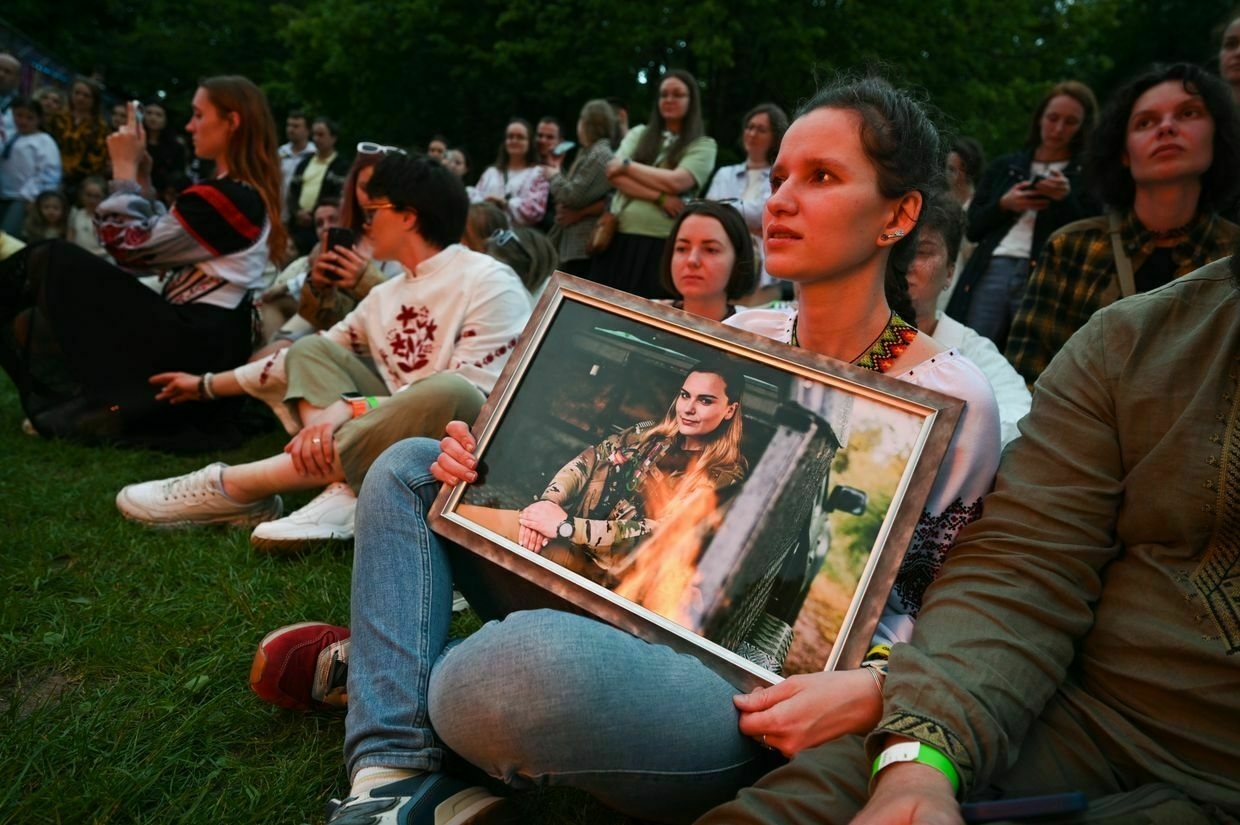
Once the playground of disgraced Ukrainian politicians, a golf club in Kyiv’s Soviet-era Obolon neighborhood is now set to become the new campus of the Kyiv School of Economics, which last month bought the site for $18 million as part of a $40 million investment — the largest private investment in education in Ukraine’s independent history.
At the opening picnic on the grounds last Sunday, over 2,000 students, alumni, and locals gathered on a territory once reserved for political elites, including scandal-ridden ex-President Viktor Yanukovych and other similarly shameless officials of his time.
After the 2014 revolution ousted those officials and Ukraine has seen a broader shift toward Europe, the early 2000s golf club — always more about status than love of sport — languished for years.
Starting next year, KSE, one of Ukraine’s top private universities, will reopen the site as a new campus focused on expanding its STEM programs to train engineers, mathematicians, and tech professionals needed for the country’s defense, recovery, and economy. KSE says it has already hired four mathematics professors from abroad to staff the math degree. The campus will also be open to the public.
“This was a closed elite community — we’re very capitalist, but we’re going to be socialists on this: Open it,” KSE director Tymofiy Mylovanov tells the Kyiv Independent at the picnic on June 1.
KSE began in the ‘90s with one executive business degree geared toward professionals who wanted to go abroad, and has since grown to 1,500 students across 17 programs — up from 177 students and six programs before the start of the full-scale invasion. The university has quickly outgrown its current building, which it bought in 2020 for $5 million.
KSE’s rector, Tymofii Brik, says the university, using a mix of “pragmatism and romanticism,” bet on Ukraine’s survival against Russia’s full-scale invasion — and its need for engineers to contribute to the war effort and rebuild — by launching new degrees in 2023, a year after the start of the invasion.

That year, KSE added programs in psychology, memory studies, law, urban science, cybersecurity, and artificial intelligence. In 2024, the university launched programs in unmanned aerial vehicles (UAVs) and micro and nano-electronics.
The new programs resonated with students who stayed in Ukraine despite the war and wanted to help shape its future, Brik says.
“There’s this expression — ‘If you build a church, they will come.’”
KSE is planning to open the 15,000-square-meter (almost 4 acres, or the size of two soccer fields) grounds to the public and tear down the fences currently separating it from the riverwalk and adjoining public park, taking its inspiration largely from U.S. university campuses. While still small compared to most American universities, it will be the first of its kind in Kyiv. The Ukrainian Catholic University in Lviv has an expansive, open campus.
Early conversations with community members, which Brik, who grew up in the area, says the school is committed to engaging in, include an outdoor cinema in the summertime.
“People deserve to have access to this beautiful public space because it belongs to the public — we have no right to close it,” Brik says.
No large land deal in Ukraine is without scrutiny — the results of decades of corruption that have led to public mistrust. KSE’s announcement is no exception. Some critics have said the purchase price was inflated, while others have pointed out that zoning laws do not allow for a campus to be built on the golf course’s grounds, on the riverbank.
Mylovanov and Brik have quick answers to the accusations: On pricing, the buildings on the golf course have far more space than people realize; on zoning, they have no plans to build anything for now, and they will maintain some golf activity to comply with the current laws.
They also point out that, as a U.S.-registered company — it is not uncommon for Ukrainian organizations and companies to be registered abroad — KSE is subject to rigorous compliance checks on any deals they do.
Others have found the wartime investment, in Mylovanov’s words, “cringey.” But for that, too, Mylovanov has a response — first, the school’s donors, made up of confidential individuals and organizations from the U.S., U.K., and Europe, want to invest in education, not the military. And second, while defense is critical, education is also a crucial part of the country’s long-term security.

Looking toward the long-term needs, KSE is partnering with Olin College in the U.S. to co-create a new, interdisciplinary engineering program, says Rebecca Brosseau, who is part of the team developing the new program.
Olin itself was founded 30 years ago on the very idea that traditional engineering curricula weren’t fostering the creative thinking future engineers needed.
Over the next year, Brosseau will recruit around 10 faculty and 10–15 students to launch a pilot program in late 2026, co-developing the curriculum together with the professors, students, and in partnership with Olin.
The goal, Brosseau says, is to build an interdisciplinary team that will design courses collaboratively and try “something completely revolutionary for engineering education and maybe even for higher education — anywhere.”
KSE’s approach is a far cry from Ukraine’s often inefficient, outdated, and even corrupt public education system — a problem of an ingrained culture, not people, says Brik. He believes that at the current moment in Ukraine, only private institutions have the flexibility to drive real reform.
“I would even put it in a very provocative way — if you gave $1 million to a public university right now, nothing would happen; but if you gave $1 million to us or the Ukrainian Catholic University, you would see something meaningful the same year,” Brik says.
When asked whether KSE wants to be a role model for Ukraine’s education system as a whole, Mylovanov says he’s done trying to prove anything to anyone.
“I just want more people in what I call the ‘anti-despair’ movement,” Mylovanov says, to counteract the defeatist narratives “by doing something small, but something real.”
 The Kyiv IndependentNatalia Yermak
The Kyiv IndependentNatalia Yermak
